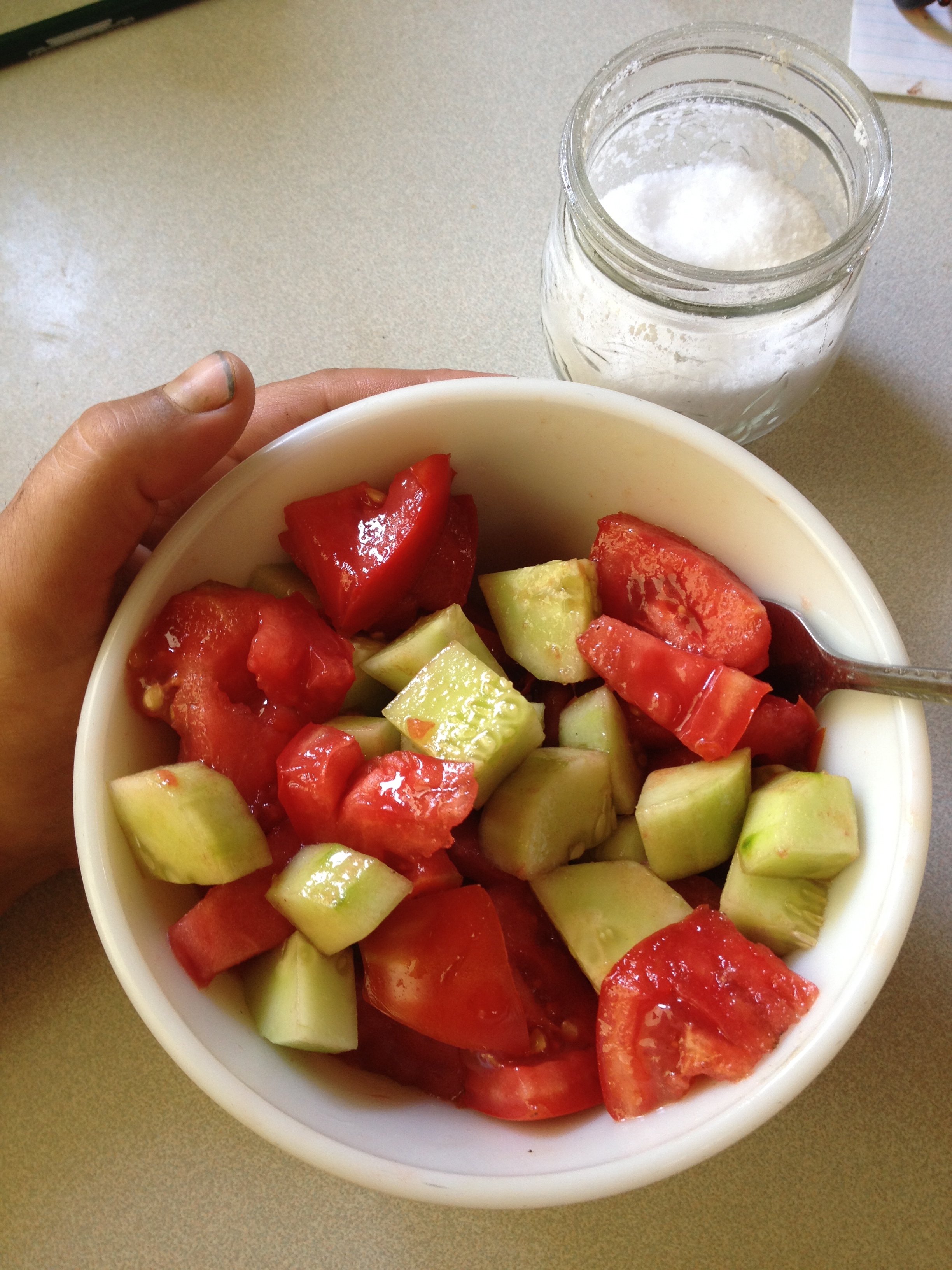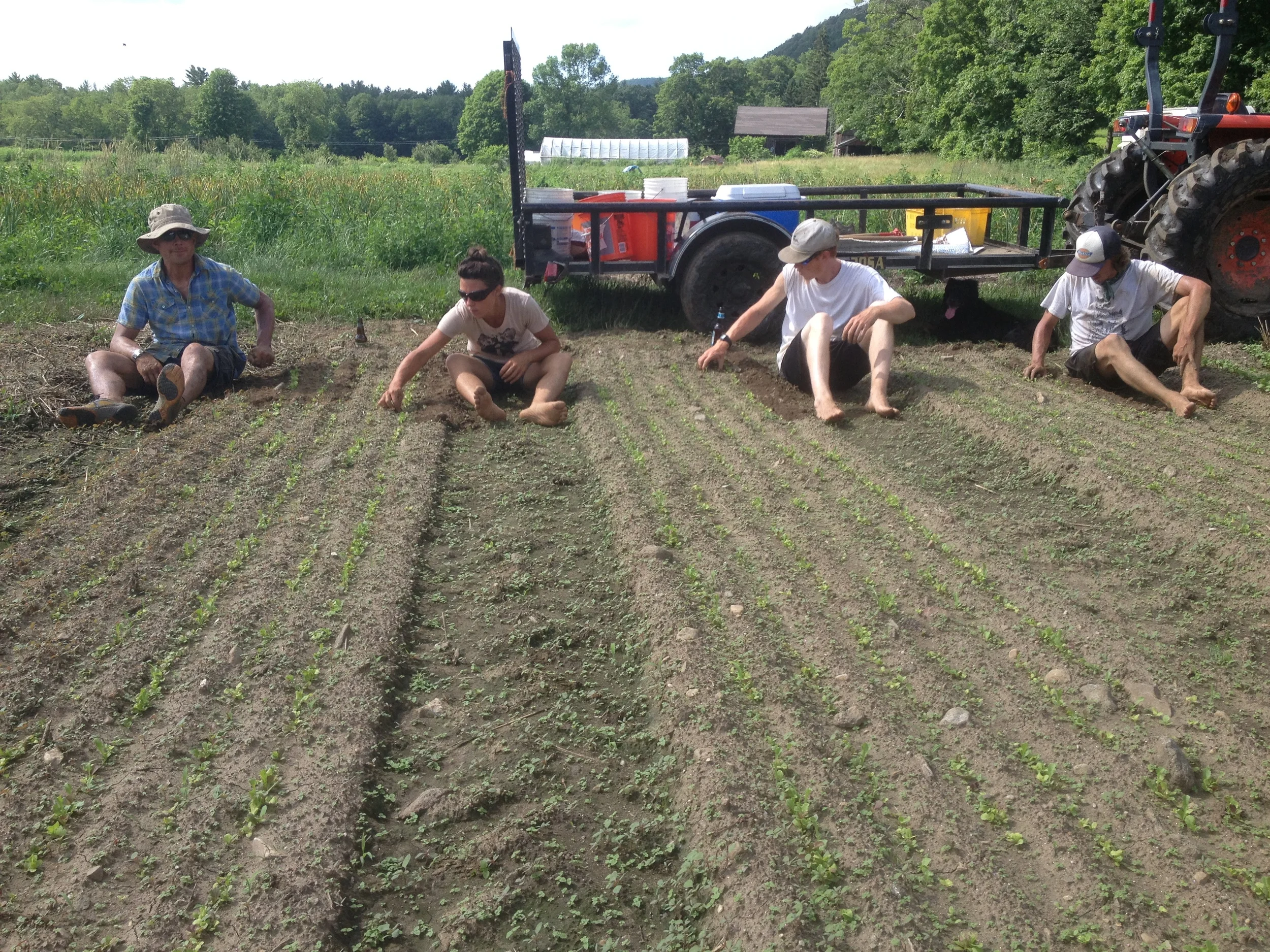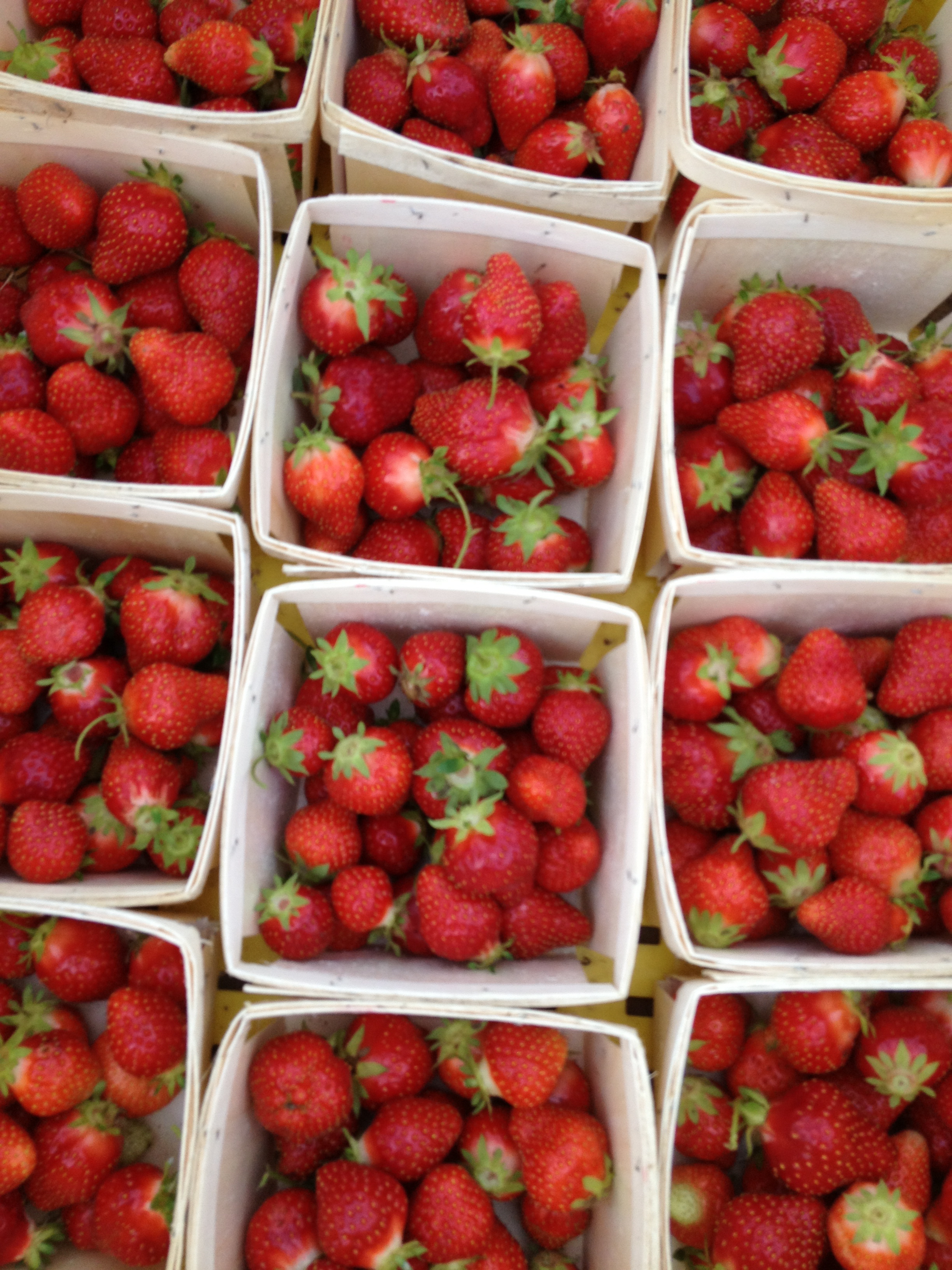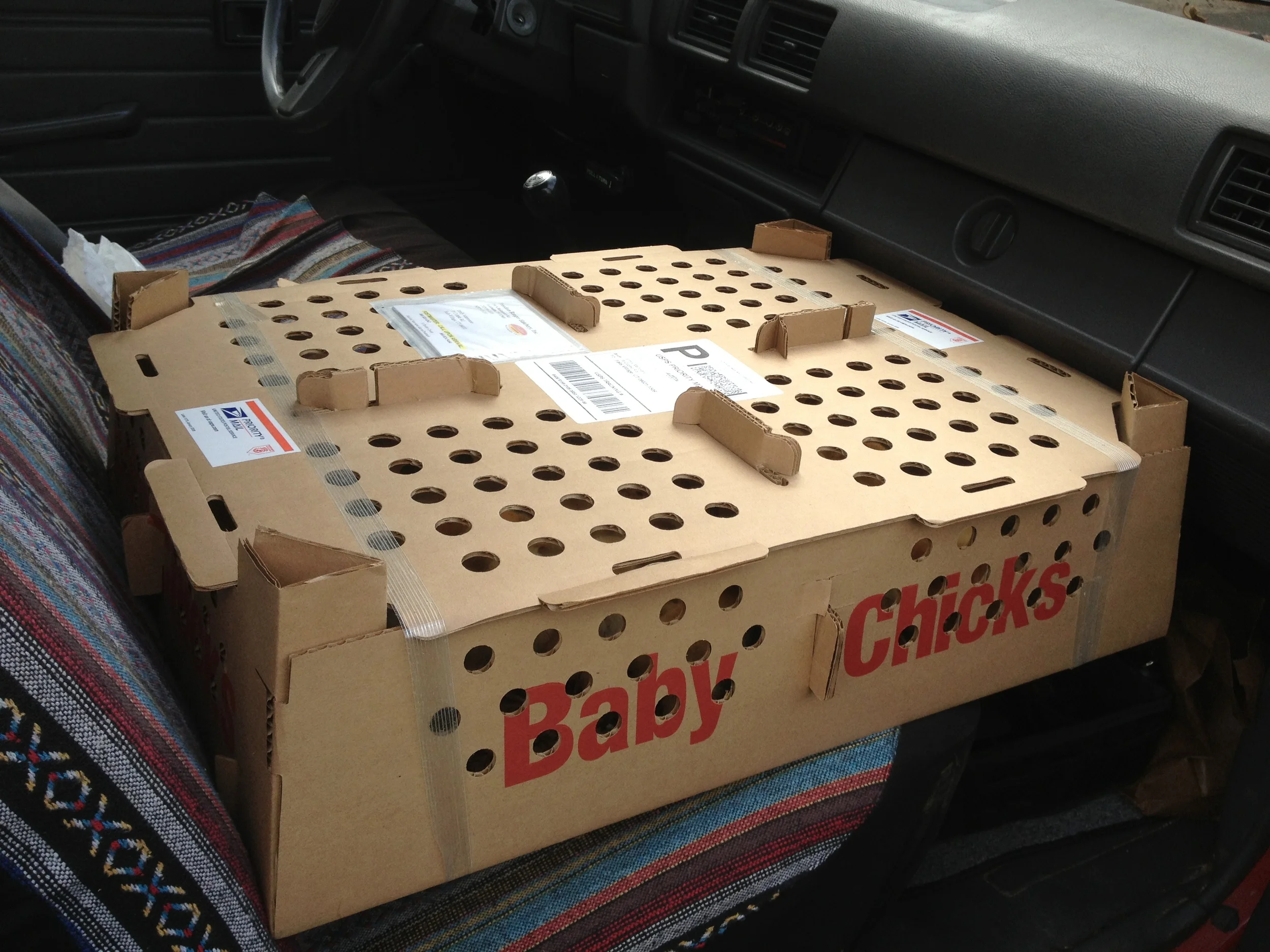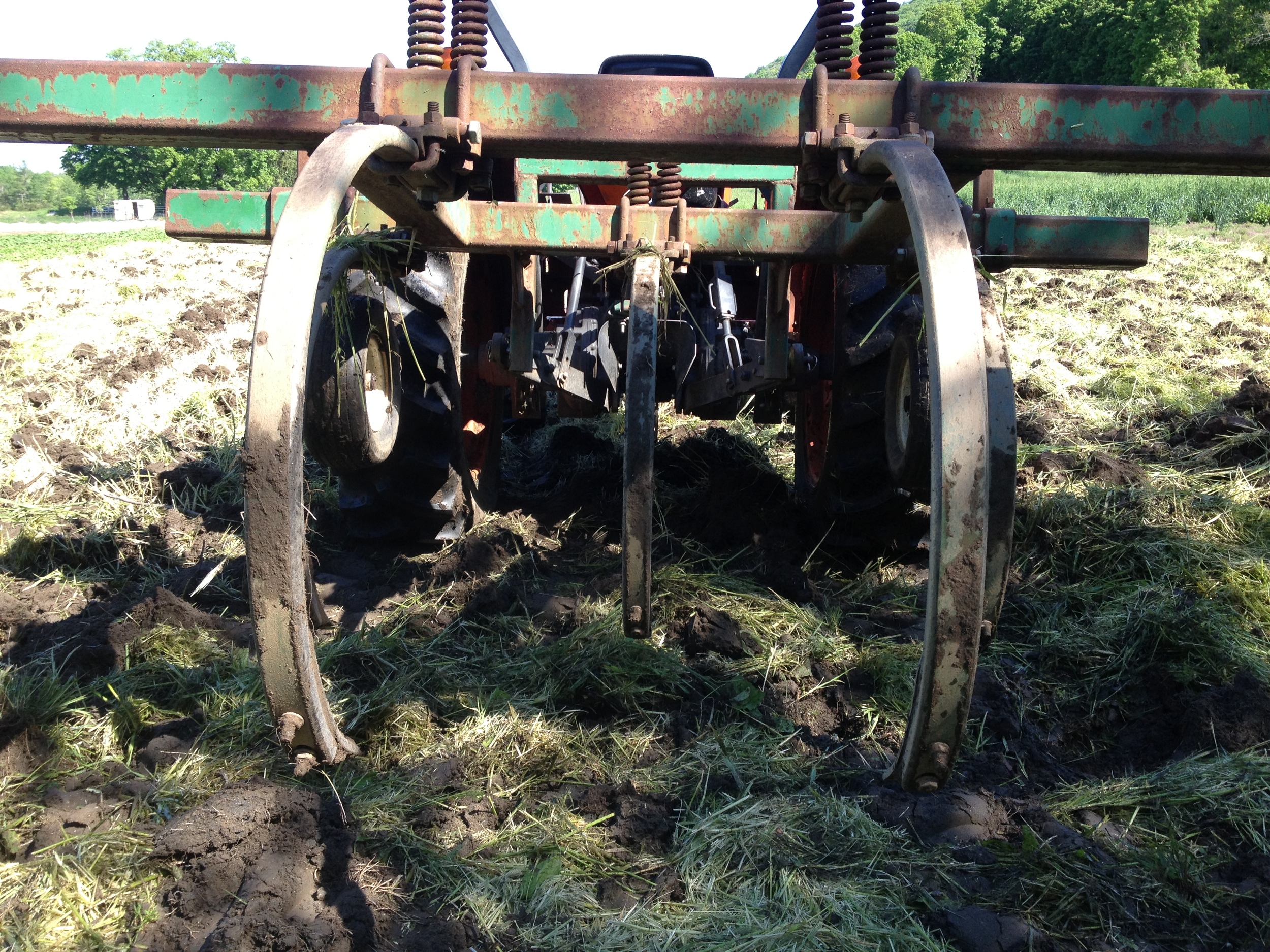Soggiest week thus far. We've had about 25 inches of rain in a little over three weeks in our little green valley. With only a handful of dry days in between the wet ones, the fields haven't been passable with the tractor of hoe for more than a few hours at a time in the past month or so. We put in about an acre of large summer crops in one day last month, and then the deluge started that very night with a memorable hailstorm. For a look at what 25 inches of rain and a month without a hoe does to a stand of tomatoes, look at the greenest photo below. The fields have standing water (these past two days, even running water!), and a few crops seem to have melted right into the soil. In the next week or two, we're going to have to make some decisions about what crops to try to save and where we'll have to cut our losses.
In situations like this, the CSA model can be both a blessing and a curse. On the one hand, you don't stand to lose large portions of income like you would were you relying on farmers market sales. On the other hand, the 250 people who pre-paid for their weekly vegetables are expecting full boxes all season long. Over the past few days and weeks, almost every shareholder we run into around town or on the farm has had the same reaction to the weather: they notice it! Someone picking up their produce at the grocery store might only be slightly inconvenienced by some inclement weather, but our shareholders have been looking forward to fresh vegetables all winter and spring, and were just getting ready to pick up their first share of the season. But as they start to anticipate visiting the farm (or their local CSA drop-off) for their first time this year, they start to notice that it has been raining quite a bit recently. Everybody seems to be thinking about us when it rains these days, out there slogging through mud and rain in our boots and bibs. That personal connection with the farmer is what makes it possible for our members to understand why the box might not be filled to the brim for a few weeks this summer, and that is the beauty of the CSA model.
Despite the weather, this was our first week harvesting a full load for delivery and pickup, and we most definitely improved in speed and efficiency as the week progressed. My stint as the only person who hadn't cut themselves with the sharp harvest knives came to a close on Thursday in the cilantro, and I'm hoping that will tide me over for awhile. I drove the White Plains route again this week, a task that both reminded me of the joys of rural living and provided an opportunity to practice the ancient art of zen traffic-sitting.
Next week, we can only hope for a sunny, dry version of this past week, in which we harvest so quickly and efficiently that we have oodles of time to finally transplant the crops that have been waiting out this weather and to save some of the potential losses from the past month's saturated excesses.
Thinking about: dry heat, time management, trade-offs
Reading: David Foster Wallace's Consider the Lobster, George Saunders' Tenth of December, Mohsin Hamid's How to Get Filthy Rich in Rising Asia
Eating: chicken I personally killed, plucked, gutted, cleaned, and cooked a variety of ways, homemade refried black beans, kale risotto, rainbow chard, small handfuls of fresh ripe strawberries







